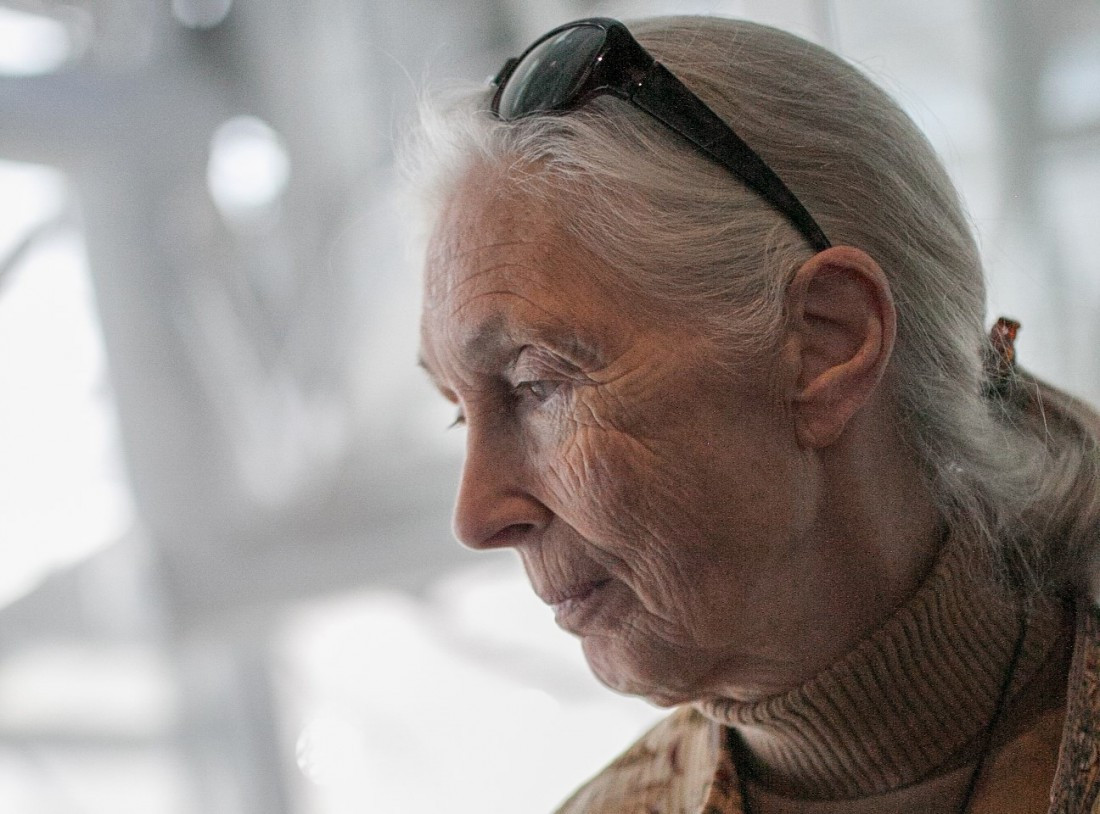Small choices to change the world
Jane Goodall shares wisdom and hope with U of W crowd
You’d be hard-pressed to find someone from the past couple generations who didn’t grow up revering Jane Goodall. With a childhood dream of going to Africa to live and study animals, Goodall remained optimistic throughout her adolescence, determined to do what she loved most.
Now, over 50 years after her first study began in Gombe, Nigeria, Jane Goodall’s work is far from over. She currently travels 300 days a year, raising awareness for environmental conservation and animal welfare.
On Friday, Sept. 11, Goodall visited the University of Winnipeg as part of the Axworthy Distinguished Lecture series. The lecture was open to the public, with 1,500 free seats. Before the lecture, Goodall spoke to <i>The Uniter</i> about why it’s so important to stay aware of the impact of our actions.
“If you’re at all a caring person, you start to think about everything that’s gone wrong on our planet, and it’s so overwhelming that you feel helpless and hopeless,” Goodall says.
“We disconnect, because what can we do? We believe we can’t possibly make a difference. I think the important thing for people to realize is that every single day we have choices... millions and ultimately billions of small choices that are made to benefit the environment and to benefit societies and actually start changing the world.”
During her lecture Goodall further emphasized her reasons to believe that it isn’t too late to turn the tables on the way we interact with our environment. The first of which was her own initiative, Roots and Shoots, a program created to promote awareness and activism in young people. With a presence in 139 countries, each group creates three projects to benefit other people, animals, and the environment.
“My next reason for hope is the indomitable human spirit,” Goodall says. “The people who tackle the seemingly impossible and won’t give up very often succeed. And because of who they are and what they’re trying to do they inspire others to join them and to follow in their footsteps.”
Earlier in the day, Goodall experienced a bit of Winnipeg through a trip to the Canadian Museum for Human Rights.
“I think it’s a fabulous educational experience,” Goodall says. “It’s wonderful for children to be able to go, it’s very imaginative with the interactive ways that you can actually learn about what’s been happening.”
At the closing of the lecture, host Wab Kinew gifted Goodall with a Birch Bark Biting created by artist Patt Bruderer. Many members of the audience remained, clutching Jane Goodall’s books, ready to wait patiently for a signature.
“Once I heard that she was coming, I knew I had to be here,” Taisa Matthews, a student at the University of Winnipeg, says. “I want to be a physiotherapist, and seeing women in science talking about their experience is really inspiring.”
In terms of the urgency of time in preserving the environment, Goodall was straightforward.
“Do you care about your great grandchildren or don’t you?” she says. “It’s as simple as that, and so by telling stories, getting into people’s hearts, that’s the only way we’ll see a change.”
Published in Volume 70, Number 2 of The Uniter (September 17, 2015)








